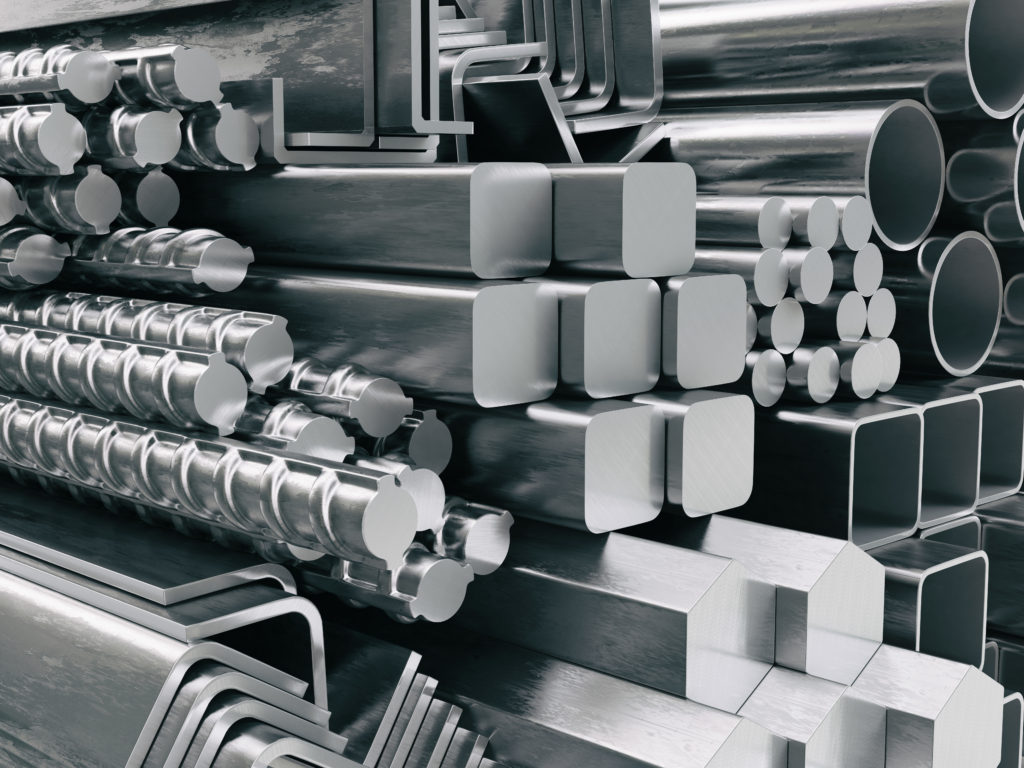Aluminum Alloys
Bar | Casting | Extrusions | Fitting | Flange | Foil | Forging | Pipe | Plate | Profiles | Rod | Sheet | Strip | Tube | Wire

At Alloys International, we extend our high-technology commitment to providing clients with the highest quality aluminum and aluminum alloys. We offer more than 90 aluminum grades in every temper, including aircraft-grade aluminum and marine-grade aluminum.
Our specialty lines include 2000, 5000, 6000, and 7000 Series aluminum, along with high-strength Aluminum alloy sheet, tubing, bar, profile shapes, and more. Our hard-temper seamless tubing is produced by the mandrel extrusion process, and our drawn tubing is made to very tight tolerance requirements.
Learn more below, and contact us for additional information on our specialty aluminum grades.
About Aluminum Alloys
Aluminum has been in high demand since it was first made available for commercial use in the late 1800s. In the many years since, the benefits and versatility of aluminum and aluminum alloys have made this metal a must for a wide range of industries, from aerospace and automotive to marine and medical. The benefits of using an aluminum alloy versus titanium or steel include lighter densities and lower costs. However, in some instances, the higher strengths of the latter two materials may be required.
The Aluminum Association classifies more than 500 types of aluminum alloys. Common varieties include the 1000 series, 2000 series, 3000 series, 5000 series, 6000 series, 7000 series, and 8000 series, which vary in terms of composition, processing method, and end-use.
The popularity of aluminum alloys is largely due to the general physical and mechanical properties they offer, particularly when it comes to strength, durability, ductility, and corrosion resistance.
Aluminum Forging and Other Processing Methods
There is a multitude of methods used in aluminum alloy processing, including aluminum forging, casting, extrusion, and rolling.
Forged aluminum is often a preferred method and uses deformation energy to refine and improve both the shape and properties of the finished product. While it’s not able to achieve quite the complexity of shape as casting, it’s ideal for producing highly durable aluminum alloys in large quantities.
Each processing method has its benefits and drawbacks. Extrusion, for example, can produce strong, lightweight materials but may introduce too much variation into a batch. Rolling is good for intricate applications but is a costly and complex undertaking.
Custom and Specialty Lines
Our specialty lines include aircraft-grade aluminum and 5000 Series aluminum, along with high-strength aluminum bar forging and aluminum alloy sheeting, tubing, profile shapes, and more. Our hard-temper seamless tubing is produced by the mandrel extrusion process, and our drawn tubing is made to very tight tolerance requirements.
Discover what makes us one of the top distributors of aluminum alloys and request a quote today.
Excellent Corrosion Resistance
Lightweight
High Strength
| Type | Specification | Datasheet |
|---|---|---|
| 1100 | AMS 4001, 4003, QQA-250/1 | More Info |
| 2011 | QQA-225/3 | More Info |
| 2014 | AMS 4028, 4029, 4121, QQA-250/3 QQA-225/4, QQA-200/4, ASTM-B-209 | More Info |
| 2024 | AMS 4035, 4036, 4037, 4041, 4194, 4195 4119, 4120, 4112, QQA-250/3, 250/4 250/5, 225/6, QQA-200/3 | More Info |
| 2219 | AMS 4031, 4094, 4095, 4096, QQA-250/30, QQA-367 | More Info |
| 3003 | AMS 4006, 4008, QQA-250/2 | More Info |
| 5052 | AMS 4015, 4016, 4017, QQA-250/8 | More Info |
| 5083 | AMS 4056, QQA-250/6, 200/4, MIL-A-46027 | More Info |
| 5086 | QQA-250/7, QQA-200/5 | More Info |
| 6061 | AMS 4021, 4022, 4023, 4026, 4027, 4115 | More Info |
| 6063 | QQA-200/9 | More Info |
| 6262 | QQA-225/10 | More Info |
| 7049 | AMS 4200A | More Info |
| 7050 | AMS 4050, 4201 | More Info |
| 7075 | AMS 4038, 4044, 4045, 4046, 4048, QQA-250/12, 250/13, 225/9, 200/11 | More Info |
| 7178 | QQA-250/14, 250/15, 200/13 | More Info |
| 7475 | AMS 4100, 4202, QQA-200/1 | More Info |



